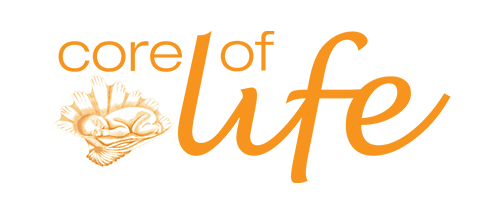Pregnancy Info & Choices
How do I know if I'm pregnant?
SIGNS & SYMPTOMS
EARLY SIGNS
- Breasts start to change – grow bigger and become sensitive
- Feeling sick in first 6-16 weeks
- Missed period – sometimes difficult to tell if woman has irregular periods
- Tiredness
- Moodiness
- Going to wee more often
- Skin changes – around the nipple becomes very dark (areola), face can get dark or light patches on the cheeks and a dark line down middle of the belly
LATE SIGNS
- Belly increasing in size
- Baby movements felt by mother (may feel like wind at first!)
CONFIRMING PREGNANCY
- Urine test – available at a cost from supermarket/chemist OR FREE from Community clinic, youth service or hospital outpatient/emergency dept (comes with counselling)
- Blood test
- Fetal (unborn baby) heartbeat heard by midwife/doctor (about 14 weeks)
- Ultrasound
Do I eat for 2 when I'm pregnant?
A: No!
During pregnancy a woman has to provide good nutrition for two individuals. The fetus is connected by the umbilical cord to the placenta, the organ that develops and implants in the mother's uterus during pregnancy. Through the blood vessels in the umbilical cord, the fetus receives all the necessary nutrition, oxygen and life support from the mother through the placenta.
Waste products and carbon dioxide from the fetus are sent back through the umbilical cord and placenta to the mother's circulation to be eliminated.
The growing baby gets all its nourishment from its mother through this umbilical cord, so diet is very important. Pregnancy doesn't mean eating twice as much. Surprisingly the energy needs increase only slightly during pregnancy so the focus is eating nutrient rich foods and making sure every mouthful counts.
If the mother is lacking in any vitamins and nutrients her baby might lack them too.
Research has shown that the food a mother eats during pregnancy can affect the development of her baby, and may also affect the baby's health later in life.
A well-balanced diet should contain something from all the food groups every day in order to get the proper amounts of energy.
Pregnancy places extra nutritional demands on the woman's body. During the first three months of pregnancy (and preferably before becoming pregnant) a woman needs folic acid. It is important during pregnancy for the creation of the baby's nervous system.
Can I still go to the gym when I'm pregnant?
A: Yes you can still do the same that you were doing prior to your pregnancy. If you are pregnant do not do any type of abdominal work or anything that requires you laying on your back e.g.bench press.
Make sure once you are pregnant to clear it with your caregiver, drink plenty of water, and do not over exert yourself.
ALWAYS listen to your body.
When is it too late to have an abortion?
A: A woman should always visit a health professional before 8-10 weeks into a pregnancy.
Abortion is the end (termination) of a pregnancy. Most abortions are performed during the first trimester of pregnancy (up to 12 weeks), but some might be performed in the second trimester (12–24 weeks) or, in rare circumstances, in the third trimester (24–36 weeks).
It's important that all women have access to accurate information about abortion so they can make their own informed decision.
My teacher found out I'm pregnant and now I don't think I can go to school. I miss my friends.
A: The education department encourages education for all young people. Young women do not have to quit school if they become pregnant. It is important that you tell your mum/dad and your family that you wish to continue with your schooling and to meet with your school Principal or school counsellor to discuss a plan of how to keep you in school whilst you can. Many schools have alternative programs available and this can be discussed when you all sit down for a chat. Also check in your local area what crèche/day care facilities are available to you once you have had your baby and feel ready to return to school, perhaps even on a part time basis.
Will the doctor tell my parents that I'm pregnant?
A: It's your right to get a confidential pregnancy test. This means you can have a test and get the results without anyone else finding out.
All states and Territories in Australia are different in the legal age for fully independent decision making.
- 14 or older in the NT
- 16 or older in NSW
- 16 or older in SA if two doctors sign off on a specific course of treatment
- 18 and older everywhere else in Australia.
If you are under this legal age where you live however, the law says it is up to the person providing your care to determine the maturity of their client.
So therefore, your parents, carers or guardians don't have to be involved or informed about what you're being treated with if the doctor decides you are mature enough, but it is important that you have someone you can talk to for support.
When can you feel the baby start to kick?
A: The first time a woman feels her baby move is around 16 to 22 weeks gestation. These movements feel minimal at first and generally are more noticeable to the pregnant woman when she relaxes and sits or is lying down quietly. Women have described the feeling as like butterflies fluttering, popcorn popping, hunger pains or gas in the tummy.

